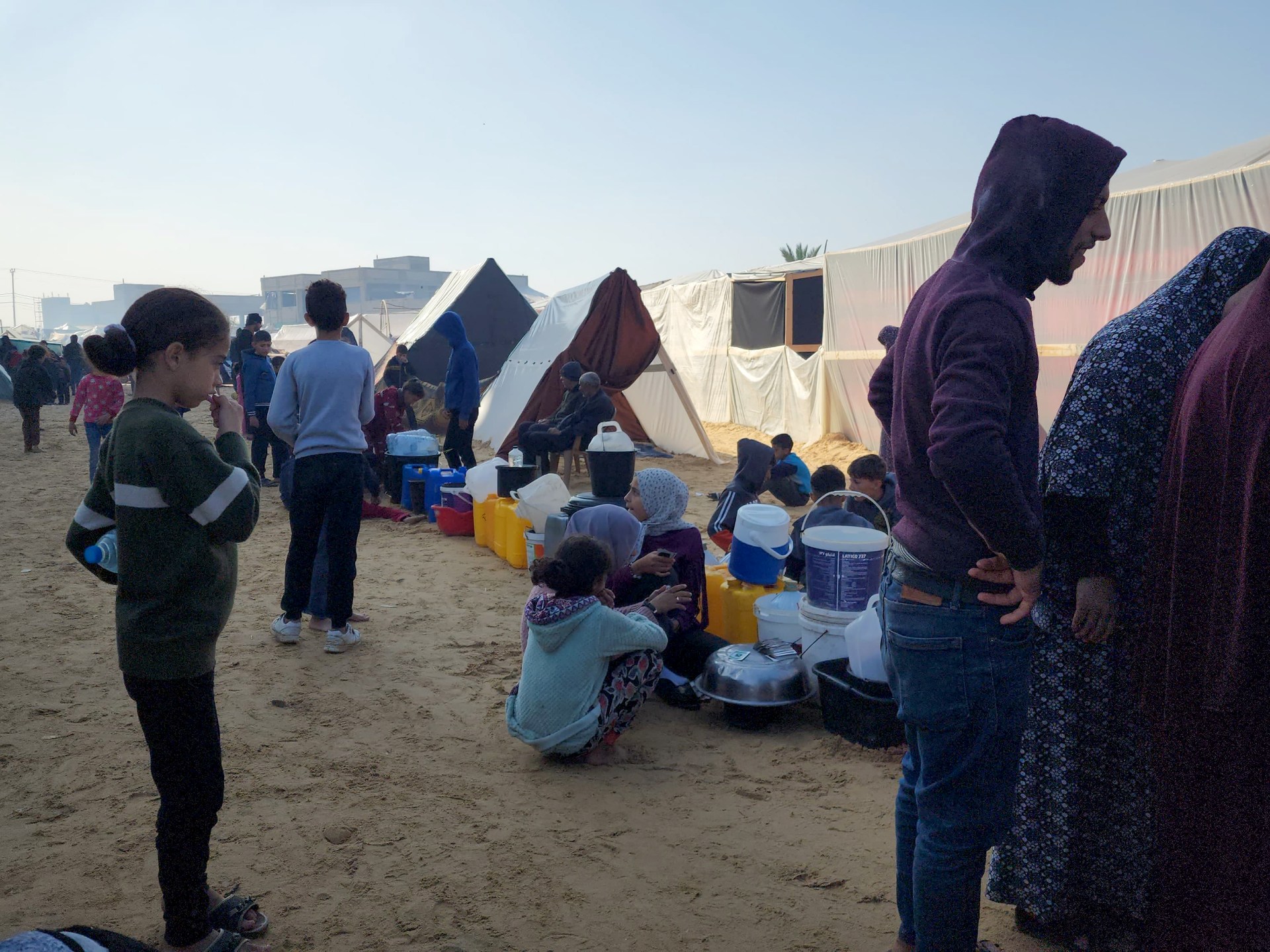Long queues of displaced people in the city of Rafah to obtain a small amount of water (Al Jazeera)
Axios quoted 3 sources as saying that the deep divisions between the United States and Israel over the Rafah operation were evident in a virtual meeting between senior officials from both sides.
The virtual meeting, which lasted for two and a half hours, took place earlier this week, after Israeli Prime Minister Benjamin Netanyahu canceled his delegation’s visit to the United States, due to its decision not to object to the UN Security Council’s decision to vote in favor of a ceasefire in the Gaza Strip.
White House National Security Advisor Jake Sullivan and Secretary of State Anthony Blinken attended the talks from the American side, while Netanyahu's associates, including Strategic Affairs Minister Ron Dermer and National Security Advisor Tzachi Hanegbi, attended from Israel.
A number of defense, political and intelligence officials from both parties also participated in the meeting.
More than a million Palestinians were evacuated from the city of Rafah
According to the website, two sources familiar with the meeting stated that it was professional and constructive, and although there were differences between the two sides, they held a serious discussion with the aim of reaching a mutual understanding, rather than just speaking from one perspective.
A large part of the meeting focused on how to evacuate more than a million Palestinians in the city of Rafah in the southern Gaza Strip, as the Biden administration once again expressed its concern about the rapid and unorganized evacuation, warning that this could lead to a humanitarian disaster.
Three sources familiar with the meeting stated that the Israeli side presented general ideas about evacuating civilians, indicating that implementation may take at least 4 weeks or more, depending on the conditions on the ground.
The American side indicated that this estimate was unrealistic, and alerted the Israelis that they were underestimating the difficulty of the mission, according to the sources.
Friction point
According to the sources, this was the point of friction between the two parties, as American officials expressed doubts about Israel’s ability to carry out an effective and organized evacuation of civilians from Rafah, given the worsening humanitarian crisis in Gaza during the last 5 months.
A US representative at the meeting explained that planning the evacuation well could take up to 4 months, but the Israelis rejected these allegations.
Sullivan also warned Israelis that the Integrated Organization for Food Security (IBC) may issue a famine declaration in the Gaza Strip in the next few weeks, according to informed sources.
The sources said that Sullivan informed the Israelis that this would be the third announcement of its kind in the 21st century, considering that this would be harmful to both Israel and the United States.
For their part, the Israelis refused to acknowledge that Gaza was facing famine, stressing that the Israeli army had better information about the situation in Gaza, and that other estimates were based on inaccurate information.
Israel denies the existence of famine in Gaza
One source reported that the American side informed the Israelis that they are the only ones in the world who deny the existence of famine in Gaza.
The United States made clear that it did not agree with Israel's assessment, especially with regard to the situation in northern Gaza, and stressed that denying reality is not a useful position for Israel.
During the meeting, the United States presented its initial ideas for an alternative approach to an Israeli military operation in Rafah.
The American alternative, which was presented in general, included isolating Rafah from the rest of the Gaza Strip, securing the border between Egypt and Gaza, focusing on targeting senior leaders of the Islamic Resistance Movement (Hamas) in the city and carrying out intelligence operations, according to the sources.
The United States stressed the necessity of carrying out a military operation in Rafah to defeat Hamas, while emphasizing the need for this to be done more slowly and with less intensity than what happened in Gaza City and Khan Yunis.
In a joint statement after the meeting, the parties affirmed their commitment to joint work to achieve the goal of defeating Hamas in Rafah. The American side expressed its concern about the various courses of action in Rafah, and the Israeli side agreed to take these concerns into consideration.
In conclusion, the two parties agreed to hold separate virtual meetings for 4 working groups of experts during the next ten days, which will focus on different aspects of the possible Rafah operation.
After these groups meet, another high-level meeting will be held in Washington within the next two weeks, according to the sources.
Source: Al Jazeera + agencies

